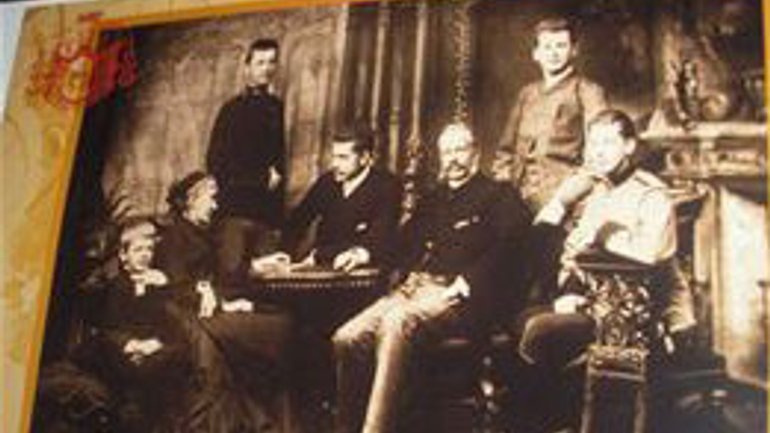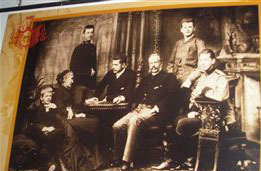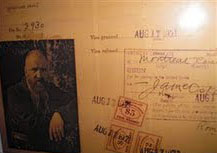Unique Documents About Metropolitan Andrey Sheptytsky Presented

 Numerous documents regarding the life and activity of Metropolitan Andrey Sheptytsky of the Ukrainian Greek Catholic Church were presented at the Lviv Historical Archives in an exhibition dedicated to the 145th anniversary of the birth and 66th anniversary of the death of the metropolitan. The materials include the coat of arms and installation letters of the Sheptytsky family, photos, diplomatic passports, letters of orphan children to the metropolitan, and numerous other archive documents.
Numerous documents regarding the life and activity of Metropolitan Andrey Sheptytsky of the Ukrainian Greek Catholic Church were presented at the Lviv Historical Archives in an exhibition dedicated to the 145th anniversary of the birth and 66th anniversary of the death of the metropolitan. The materials include the coat of arms and installation letters of the Sheptytsky family, photos, diplomatic passports, letters of orphan children to the metropolitan, and numerous other archive documents.
The exposition is divided into chronological-thematic headings: family life of the Sheptytskys, the metropolitan's calling, his church activity, renewal of monastic orders by him, elevation of the status of seminaries and establishment of the Theological Academy in Lviv, educational and cultural activity, his activity as a sponsor, pastoral and theological activity, and the last years of life.
 Metropolitan Andrey Sheptytsky paid great attention in his life to documents and their preservation for history. He established an archive at the metropolitanate of UGCC, where known historians and archivists worked.
Metropolitan Andrey Sheptytsky paid great attention in his life to documents and their preservation for history. He established an archive at the metropolitanate of UGCC, where known historians and archivists worked.
The archive, compiled by the metropolitan during his life, underwent ruinous trials three times: during WWI when the family archives in Prylbychi was destroyed, including the coat of arms, old manuscripts, the library, pictures, icons. From 1918, the family sought to renew the archives but it was also destroyed by the Bolsheviks in 1939.
After the death of the metropolitan, the archive documents, which have been preserved thanks to his efforts, were dumped by the Soviet authorities into the yard of St. George's Cathedral and then transported somewhere for recycling. However, some official understood that they should not be destroyed and the archive workers rescued the documents at the last moment. Part of them were passed to the Historical Archives in Lviv and the other part went to Kyiv. The family materials are also kept in St. Petersburg as they were moved there during WWI.









